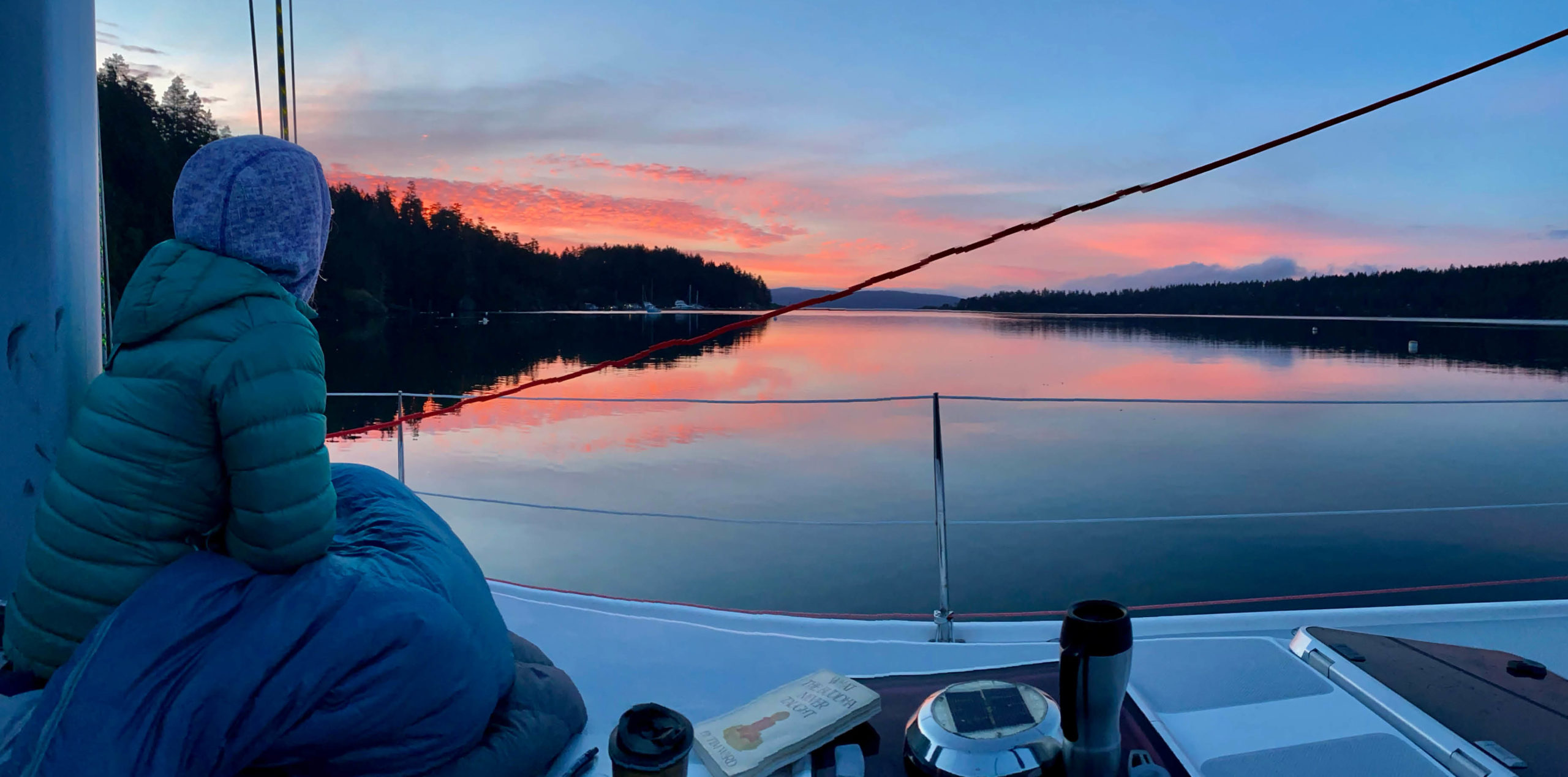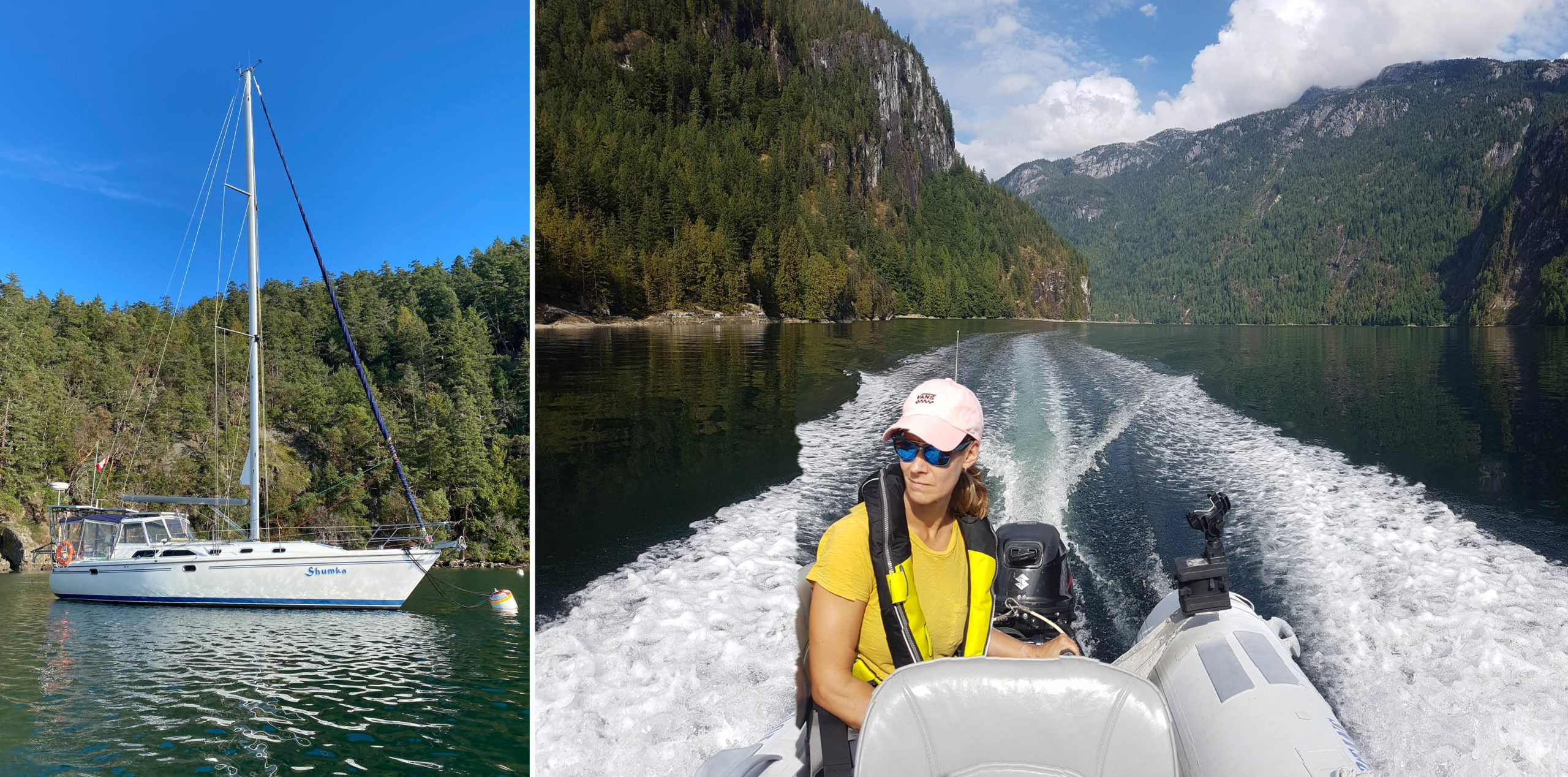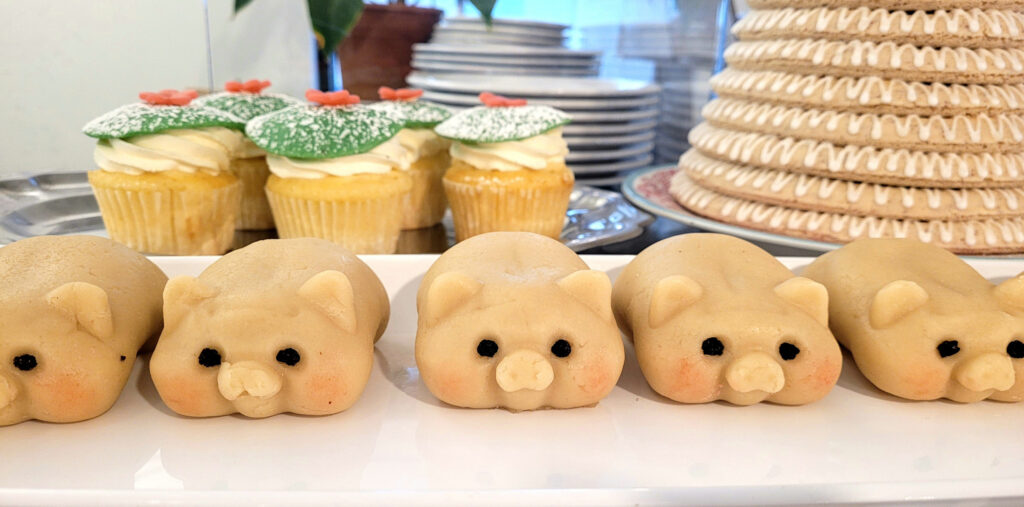by Claire Booth | photos by Chris Falk –
In Fall of 2020, my partner Chris and I, professionals in our late 40s, left North Vancouver for our new home: a 42-foot Catalina sailboat. I knew nothing about boats, so when Chris first suggested we travel around the world by boat, I gaped at him. My head screamed no but my heart whispered yes. After years of building and running a market research business, I was yearning for quiet, simplicity and expansiveness. I began to transition the leadership of my company to my now business partner and, one by one, exited the many organizations I was part of. By the time we left the Lower Mainland, I had let go of so much I felt raw.
In the early days of Covid, my sister and I went for a long hike. We were chatting about my plans, and she asked me a question that reverberated for months after: “What are you going to do on the boat?” For the first time in years, I would not be working and I was scared to voice what I most wanted: to spend a lot more time being and a lot less time doing. But saying things out loud is a part of bringing them to life.
Once I was on the boat, any question of “being” was swept away by the steep learning curve and I soon felt completely incompetent and disconnected from myself. I also felt guilty. Letting go of my corporate identity was far more difficult than I anticipated, and I was convinced I had abandoned my team. I felt like I was dying, which of course, I was. No longer was I running a company; I was now a very green first mate. Meetings and budgets were replaced by boat repairs and provisioning. Looking back, I can now see that I was using my guilt as a very scratchy security blanket, a means of clinging to the old life and resisting the new.
Amidst my angst, I continued to hear the echo of the conversation with my sister and attempting to make sense of my feelings, I turned to memoirs by authors taking a closer look at their mid-life years. It wasn’t long before I came across Carl Jung’s quote:
“Thoroughly unprepared, we take the step into the afternoon of life; worse still, we take this step with the false assumption that our truths and ideals will serve us as hitherto. But we cannot live the afternoon of life according to the program of life’s morning.”
It finally became clear to me that I was entering the afternoon of my life, or “the second mountain” as David Brooks calls it; or what Richard Rohr refers to as the “second half” where the acts of being, listening and paying careful attention take precedence over achievements and roles. In this new phase, I’m learning that what you do unfolds from who you are. This new practise seems to require not just trust but faith and not just letting go but surrendering. Once I accepted this, I was able to embrace the boat.
A few months into boat living, I hiked past a plaque on a Galiano trail that read: “Simplicity is an Advanced Course.” I recognized the wisdom in it. Initially downsizing to boat living wasn’t too difficult: the dinghy became my car and all my clothing was pared down to a few small drawers, but adjusting to the pace of boat life took a little longer. Laundry is a half-day event and I still have to remind myself that a three-hour sail to replace a 20-minute drive is what I signed up for.
In the last year, we have lived on the hook in almost 40 anchorages in coastal B.C. While our living space may be small, our backyard is infinite. John Keats writes about something he calls Negative Capability – the ability to thrive in uncertainty.
Looking back, I can see how this concept captures my first year as a liveaboard. What felt like death was birth. What felt like guilt was surrender. Not knowing what’s next feels like freedom.
Currently based in Sidney, B.C., Claire Booth is the author of “The Achiever Fever Cure” and the Founder/Owner of Lux Insights.





